Sydney celebrates Independence Day in true mateship spirit
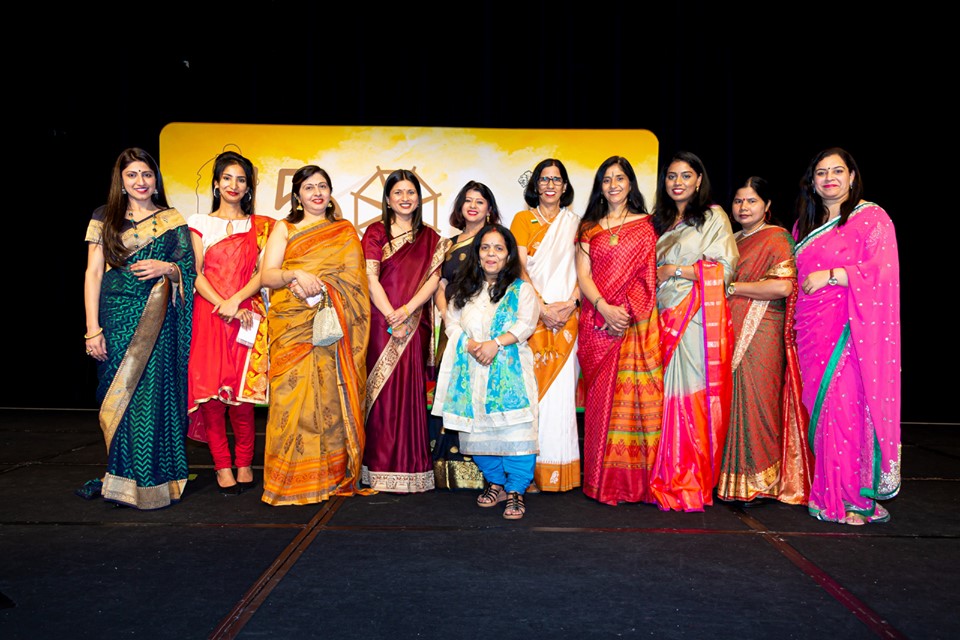
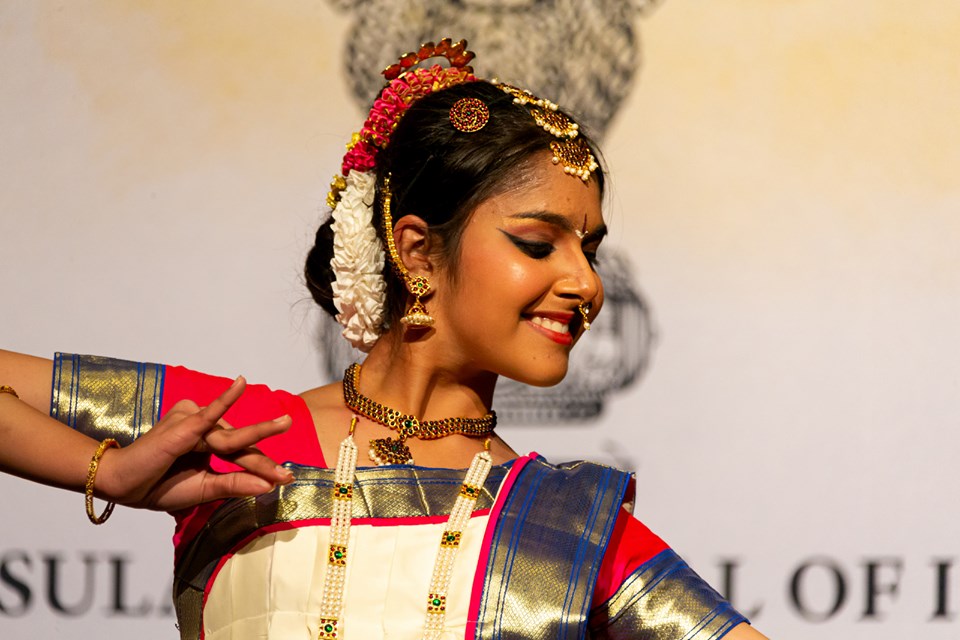
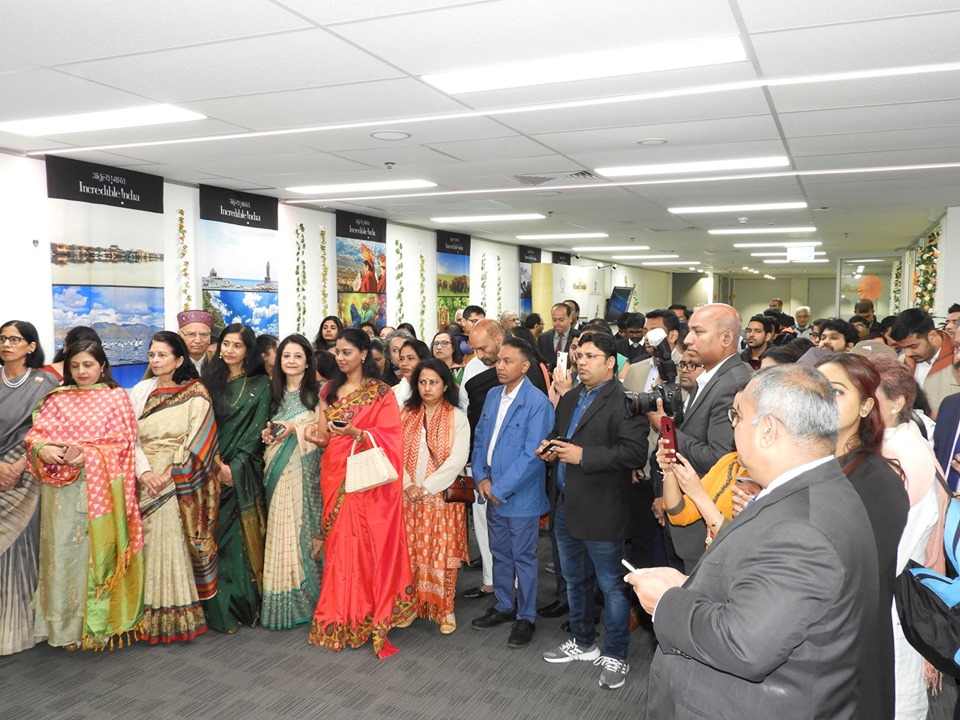
By Vijay Badhwar
India’s 73rd Independence Day was celebrated in Sydney with traditional flag-hoisting ceremony at the Indian Consulate teaming with a large number from the community whose heart still flutters with the tricolour.
Flag-hoisting by the Consul General Manish Gupta was followed by national anthem and then by reading of the Indian President’s message for the Diaspora.
The President, Mr Ram Nath Kovind, remembered freedom fighters and revolutionaries for their sacrifices to win freedom from colonial rule.
He said, nation building was about creating that optimal partnership between voters and their representatives, between citizens and their government, and between civil society and state.
Mr Kovind recognised empowerment of women by making available for them toilets and water to enhance their dignity – a catalyst for them to achieve their ambitions in the wide world.
Indians share the same dreams for accelerated development, for effective and transparent governance, he said.
The President said, “I am confident that the recent changes made in Jammu-Kashmir and Ladakh would be of immense benefit to those regions.”
He said, the changes made in Jammu and Kashmir and Ladakh in the Parliament recently would enable the people to access and enjoy the same rights, same privileges and same facilities as their fellow citizens in the rest of the country. He expressed confidence that scrapping provisions of Article 370 that gave special status to Jammu and Kashmir and bifurcation of the state into two Union Territories would benefit people of those regions.
In the evening, Consul General Manish Gupta invited local politicians, his contemporaries from Consular Corps based in NSW and Indian community representatives to continue the Independence Day celebrations at the Sofitel Hotel in Sydney. Following national anthems of Australia and India, there were speeches to mark the occasion.
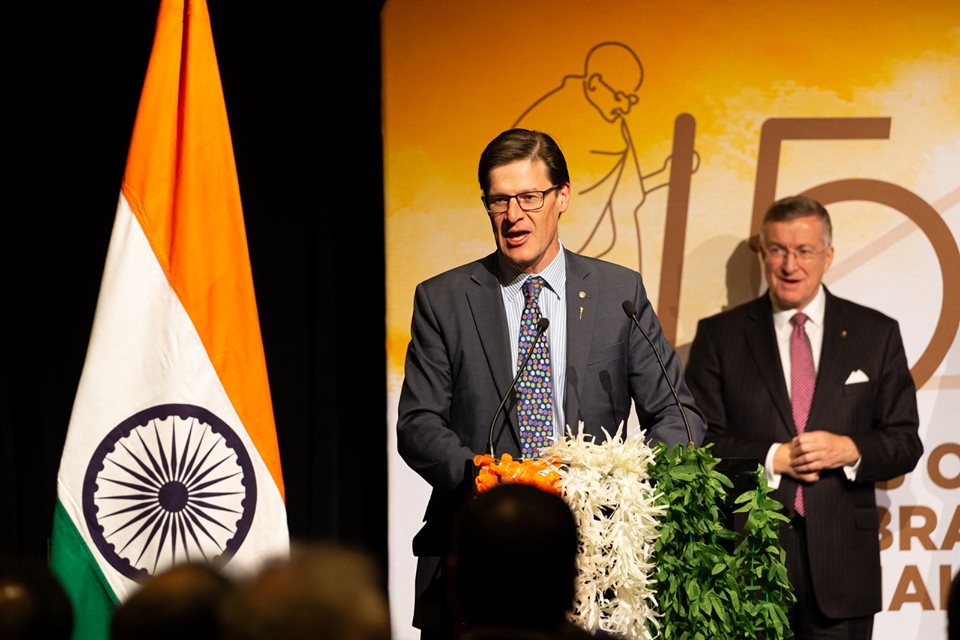
NSW Governor Justice Margaret Beazley was not able to attend the function but her message was read: that India belonged to a special group as part of the Commonwealth family to share common values – understanding of democracy, human rights and rule of law.
The Governor’s message complimented the sharing of sister state relationships with Maharashtra and Gujarat and the person to person contact through the local Indian community.
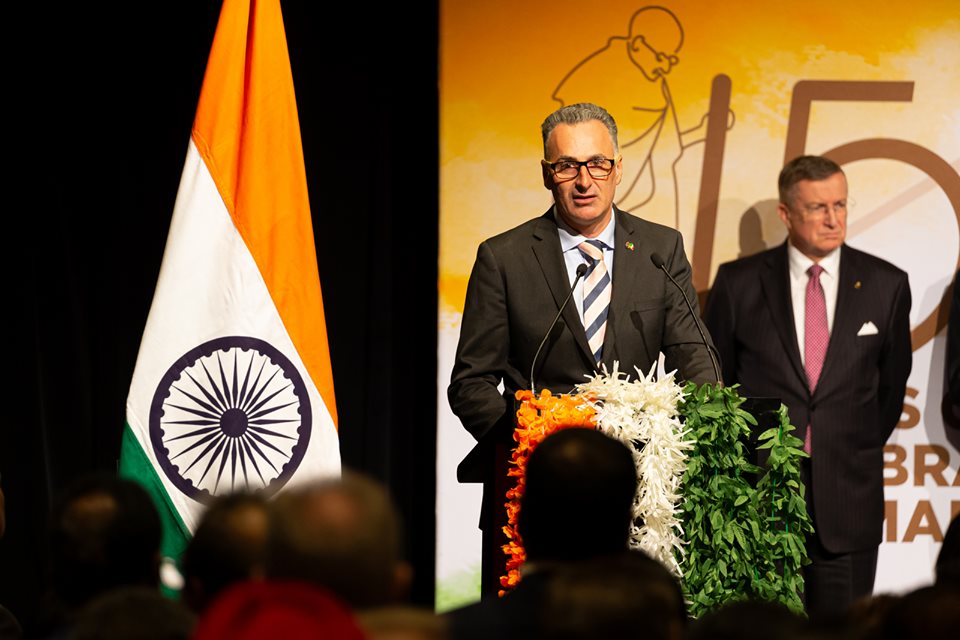
The NSW Minister for Multiculturalism, John Sidoti, said he was proud to represent the state with so much diversity – with 300 ancestries and 350 languages – that brought strength to the community.
He commended the contribution made by ”˜vibrant’ Indo-Australians who had worked hard to achieve in their chosen fields. “As the Minister, I have opportunity to meet many of you first-hand,” he said.
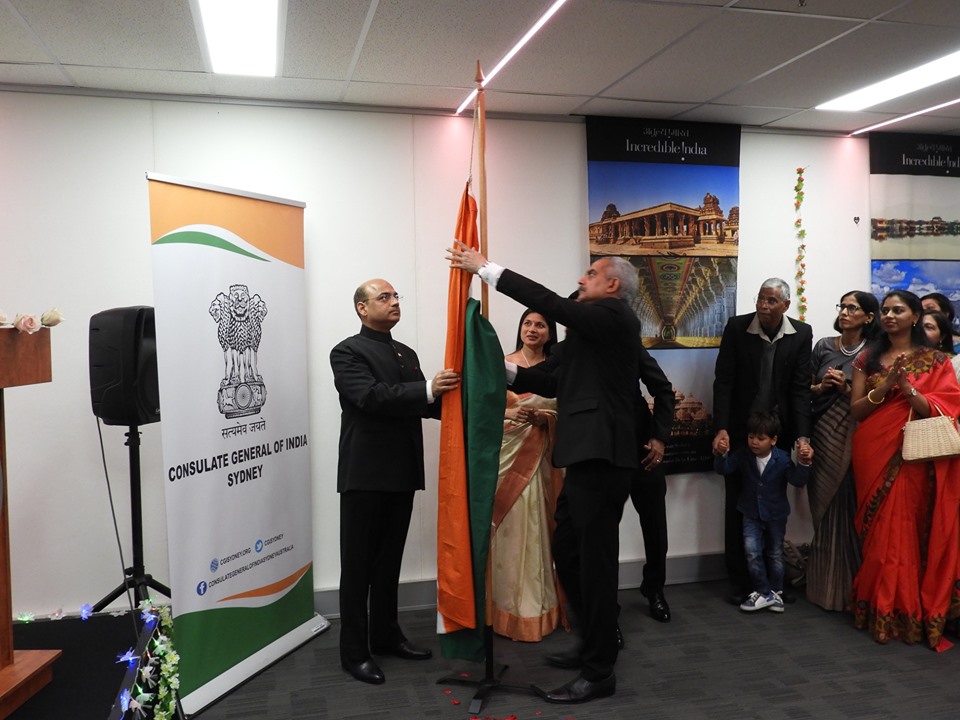
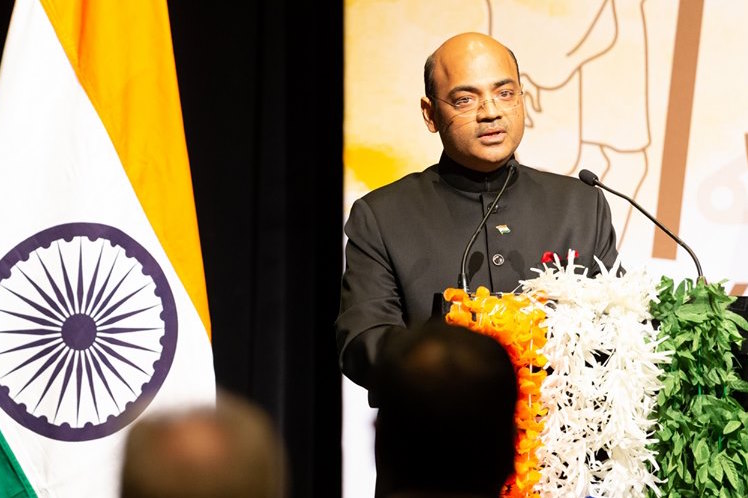
Consul General Manish Gupta remembered the Father of Nation who seven decades ago created the first oasis in the world with freedom from foreign ruleand rigid social customs.
Mr Gupta cited India as an emerging economy with many achievements in research and innovation with exploration of Mars and Moon. There had been a marked transformation in the last two decades: every Indian now had a digital identity, a bank account, two thirds connected by Internet and mobile phones.
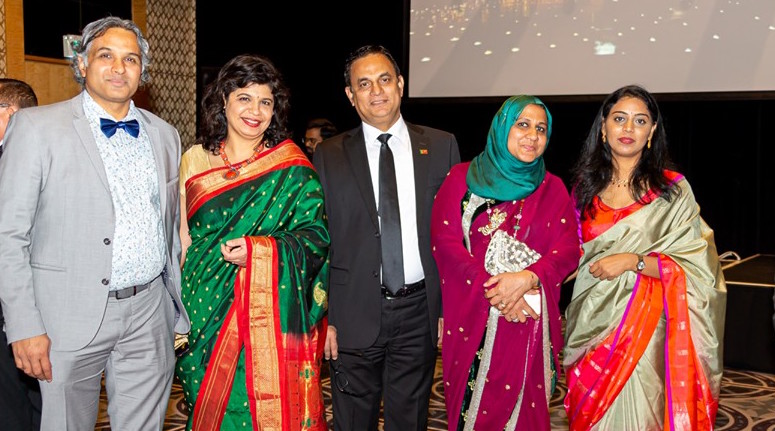
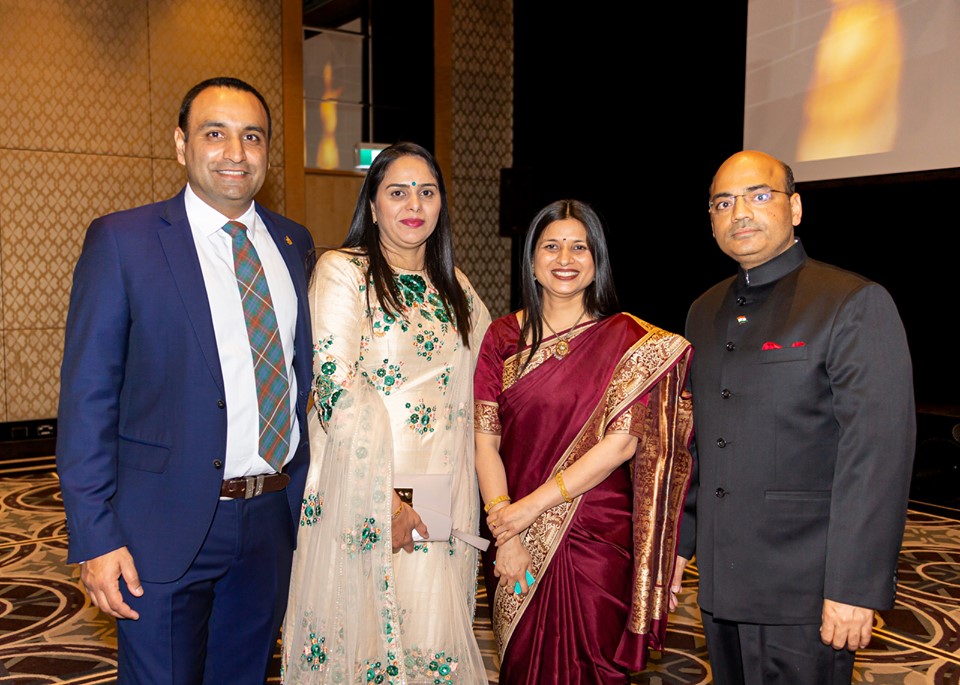
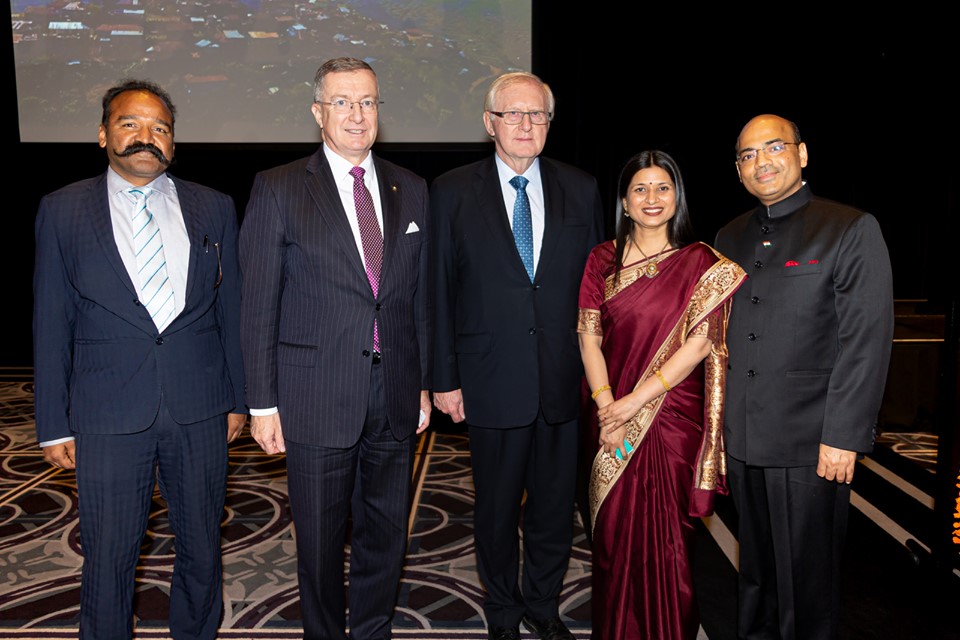
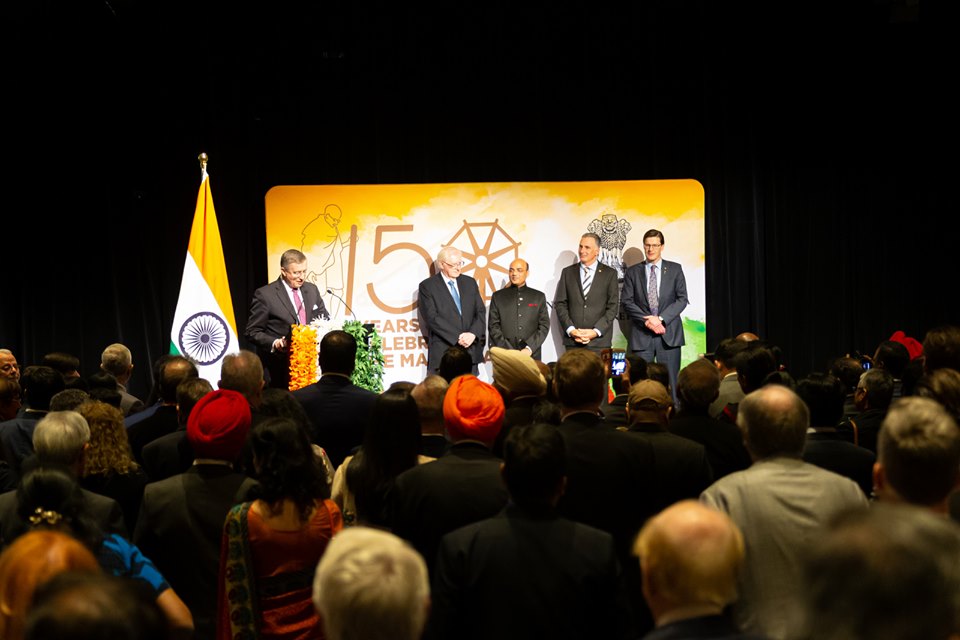
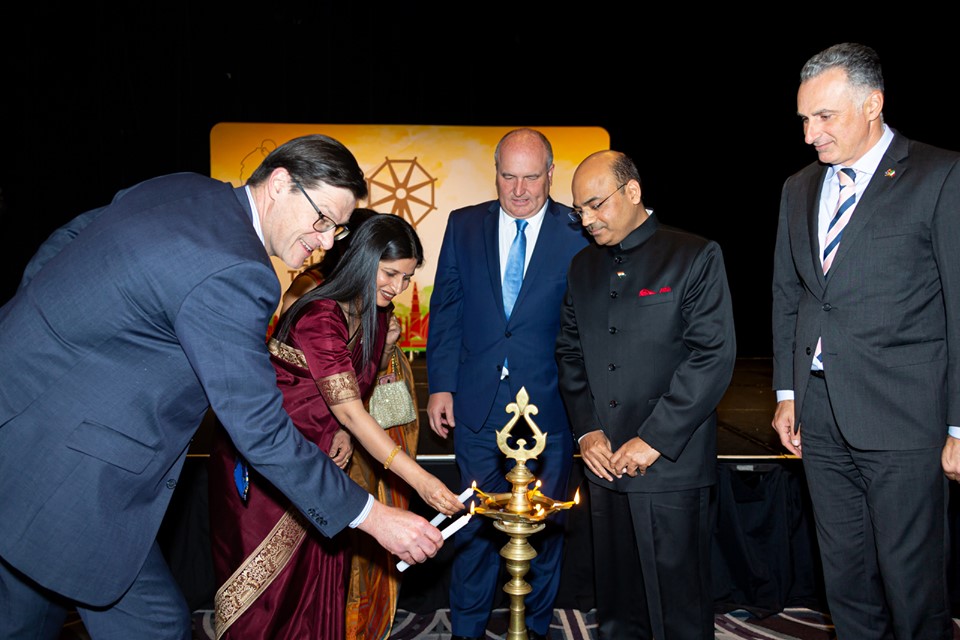
India had jumped 53 points for ease of doing business. There had been a Telecom revolution with largest number of Indians now on Facebook and using WhatsApp, he said.
Manish Gupta quoted Mr Modi when he had visited Australia in 2014 that Australia was no longer at the periphery but at the centre of India’s thought vision.
The vibrant Indo-Australian community had the potential to be fully tapped as a
valuable foundation to bring the two countries together and take the relationship to new heights, Mr Gupta concluded.
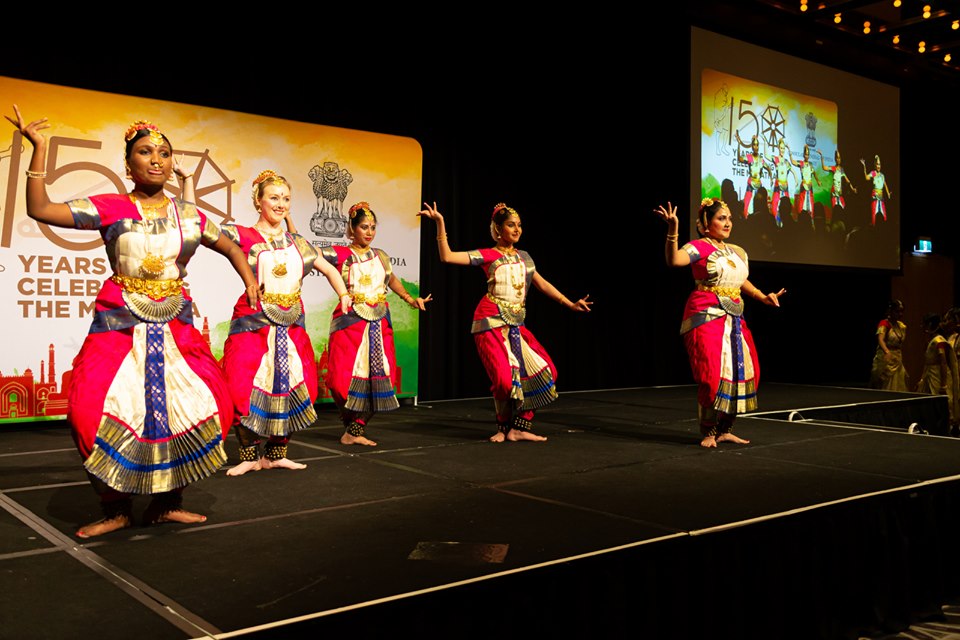
Modi has grand visions for India
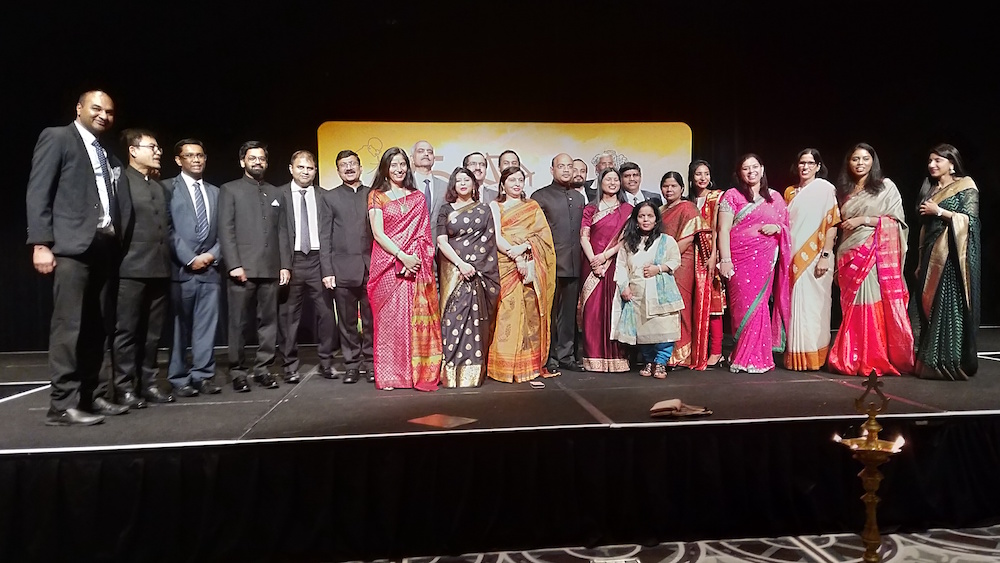
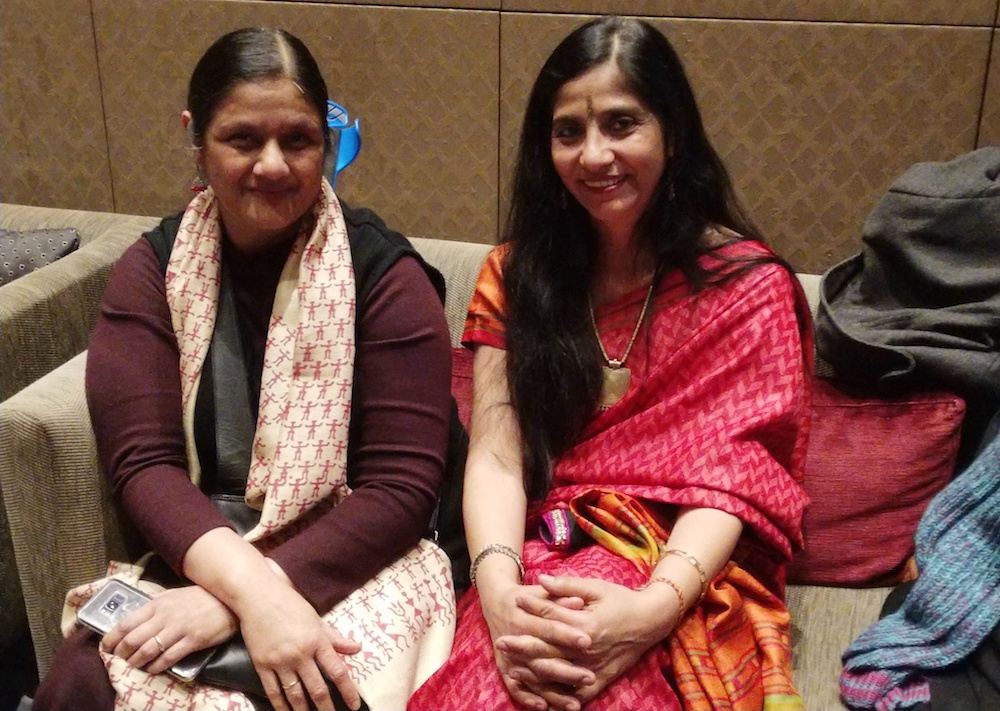
Indian Prime Minister Narendra Modi, in his 94-minute-long Independence Day message delivered from the ramparts of historic Red Fort, emphasised the importance of integration of Kashmir with the rest of India, also outlining his visions about future India, empowerment of women by making ”˜Teen Talaq’ illegal, economic development to make India a five-trillion economy, developing business and tourism hubs, water conservation and discouraging use of single-use plastic among many other things.
“While 2014-2019 was a period of fulfilling your basic needs, the years from 2019 and beyond will see your aspirations and dreams getting fulfilled,” he said.
“We had started with the mantra Sabka Saath- Sabka Vikas , but within five years, the countrymen have painted the entire mood of the nation with the colour of Sabka Vishwas. The Trust and confidence that everyone reposed in us over the last five years will inspire us to serve the nation with more vigour,” Mr Modi said.
Muslim daughters and sisters used to live in fear with the sword of Triple Talaq dangling over their heads. If, we can abolish Sati Pratha and other ills in our social systems, then why can’t we raise our voice against Triple Talaq, he asked.
“Revocation of Article 370 and 35A is the hallmark of this government. We do not avoid problems, nor do we let them fester. There is no time to delay or neglect problems. The work that was not done in the last 70 years has been accomplished within 70 days after this new government came to power. The abrogation of Article 370 and 35A has been carried out in both Rajya Sabha and Lok Sabha by two-thirds majority.
“The system that prevailed over the past seventy years had aggravated separatism and given birth to terrorism. It had encouraged dynastic rule and in a way strengthened the foundations of corruption and discrimination.
“The new system that has come into being after the recent step will create facilities that will directly benefit the people of the State. Now, anybody in Jammu and Kashmir, like the rest of Indians, can reach out to the Government in Delhi.
“If Article 370 was so crucial then why did ruling parties not make it permanent in the last 70 years despite having a majority? Why was it kept temporary?” Mr Modi asked.
During the speech, the Prime Minister raised awareness of consequences of uncontrolled population growth.
He also made a commitment to cut down red tape and reduce the involvement of the Government in the daily life of the common man by abolishing obsolete redundant laws. This would facilitate small business as well as ease doing business with India.
Mr Modi announced an important decision to restructure the three wings of the armed forces to be led by a Chief of Defence Staff (CDS) to achieve a co-ordinated and effective leadership at the top level.
Pics. Vishal Kumar, M4Ever Photography, 0400 229 688
Short URL: https://indiandownunder.com.au/?p=13937
